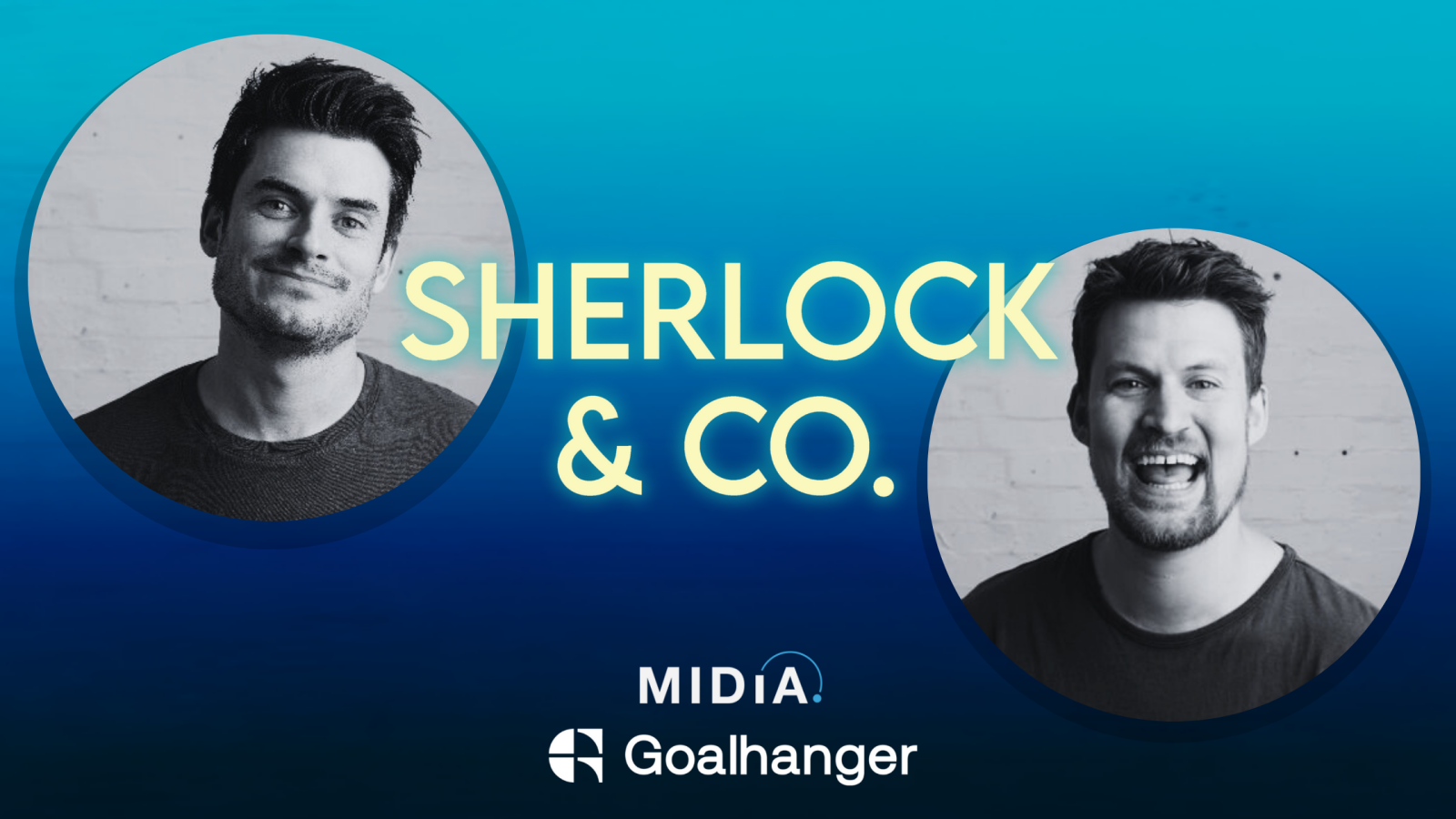The audio drama renaissance: The curious case of Sherlock & Co.

The audio drama, a format once consigned to history, is enjoying a remarkable revival. At its epicentre is a compelling case study in modern audience engagement: Goalhanger’s Sherlock & Co. a narrative podcast now approaching one million monthly downloads. To understand the drivers behind this resurgence, I spoke with its writer and director, Joel Emery and Adam Jarrell.
Their success defies old stereotypes. The show’s core audience is not legacy radio play loyalists but a new generation of Gen Z and Gen Alpha listeners. For this demographic, high-quality narrative audio is not a retro throwback but a sophisticated, screen-free entertainment alternative. This aligns with a broader cultural shift towards mindful media consumption, positioning audio drama as an immersive antidote to screen fatigue.
The Goalhanger network: Leveraging trust for discovery
A primary factor in Sherlock & Co.'s success has been its placement within the Goalhanger network. In a fragmented content market, discovery remains a significant hurdle. The show benefited from what can be termed 'contextual discovery' - being promoted to an established, trusted audience of other Goalhanger shows. Emery pinpointed the value of this ecosystem, noting: “I put a lot of it down to Goalhanger, a lot of companies have reach but Goalhanger have really trusted hosts, so if I hear an advert somewhere else it’s impersonal, but if it’s Tom or Dominic [From The Rest is History] recommending another Goalhanger show, it holds more weight”.
I’d go one further and say that the Goalhanger brand itself has become a trusted host. When a listener who enjoys one show in its diverse catalogue sees the Goalhanger banner on another, that curation carries significant influence. This model, which moves beyond impersonal algorithmic promotion, underscores the increasing value of curated podcast networks as critical infrastructure for launching successful scripted content, turning a network into a powerful discovery engine.
Demographic re-alignment: Audio drama finds a new generation
Breaking the mould of the audio drama listener, Sherlock & Co. has attracted a significantly younger demographic than anticipated, with over a third of listeners under 25. Emery confirmed this shift, stating, “We certainly weren't expecting it... we were expecting Rest Is History listeners – you know, older”. Instead, they found a core audience of Gen Z.
This realignment is driven by two converging factors. Firstly, the show’s format – presented as a true-crime podcast hosted by John Watson – resonates with a generation fluent in the language of creators. Jarrell described this as the "narrative podcast angle", which lowers the barrier to entry. Secondly, this demographic was culturally primed for the content, having grown up with a modern screen adaptation, BBC’s Sherlock, which for many core fans ended far too soon. Jarrell reflected that encountering these characters at a formative age “does stick with you”, creating a latent demand that the audio format was positioned to meet.
Get in touch to become a MIDiA client.
The strategic benefits of an audio-first model
The audio-first model provides a distinct strategic advantage through its unique combination of scalability and immersive potential. While often considered expensive within the audio sphere, Jarrell reframed its value, noting it's only costly "when you think about [it] compared to other audio". Against television, it is remarkably scalable. This allows for a narrative scope that is central to the show's appeal, effortlessly moving listeners from the moors of Dartmoor to a train in India – achieved through soundscape, not costly location shoots.
This scalability enables a narrative scope that is central to the show's appeal. Jarrell illustrated this by pointing out the show's diverse locations: "We took them to Scotland, Dartmoor, India, Switzerland, they've been all over now". A single episode can transport the listener from a London flat to the moors of Dartmoor or a train in India, achieved not with costly location shoots or set builds, but through evocative sound design and storytelling. Emery perfectly captured this freedom, explaining that while a TV production would have to "fill the Royal Albert Hall with people", in audio, "we’re able to describe it instead”.
Furthermore, the medium’s absence of visuals is a strategic strength in an era of screen fatigue. Emery identified a growing cultural “squeamishness about screen time”, positioning audio as an immersive yet restorative alternative. This is enhanced by the personal nature of the listening experience. Jarrell explained their conscious decision to never define character appearances, allowing each listener to imagine the world for themselves. This active co-creation forges a powerful, personal connection with the story, directly fuelling the passionate fan culture that surrounds the show.
The content creator paradigm and listener integration
A unique aspect of Sherlock & Co.'s success is its integration of the audience into the fabric of the show. The use of real listener "shout-outs", which sometimes even influence the plot, creates a powerful feedback loop. Emery described this as being “custodians of this world, but you're also allowing these people that so desperately want to be in it, like a kind of doorway”. This strategy transforms passive listeners into active participants, fostering a deep sense of community and ownership that is less common in other media formats.
The role of fan co-creation in Sherlock cannot be overstated. The creators noted the immediate surge of fan art in “the second or third week", and Emery acknowledged the deep-rooted, tradition of Sherlock Holmes fan fiction, which allows audiences to explore character relationships and identities. By fostering this creative space, the show cultivates a profound sense of community and ownership, turning its listeners into a powerful, organic marketing force that ensures the IP remains dynamically relevant and deeply personal.
The final deduction: Closing remarks on the case of Sherlock & Co
The case of Sherlock & Co. is closed, and the verdict is clear: the audio drama is not a relic; it is a frontier. Its success provides a replicable model built on trusted discovery, demographic understanding, immersive quality, and creative freedom.
For the industry, it signals that narrative podcasts are a high-value, scalable asset capable of attracting a coveted young demographic. For fans, it is a promise that the golden age of storytelling is not behind us – it’s just being broadcast on a different frequency. The game is afoot, and the future of audio sounds more compelling than ever.


The discussion around this post has not yet got started, be the first to add an opinion.